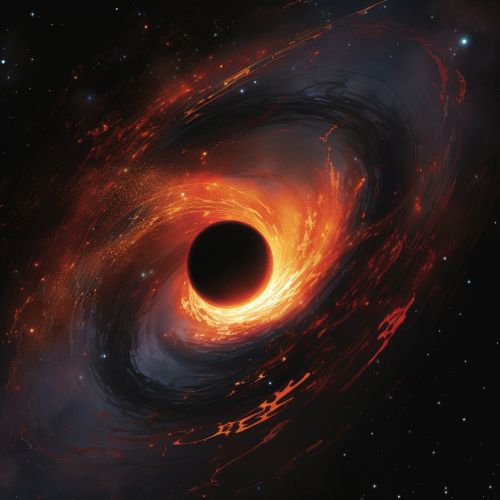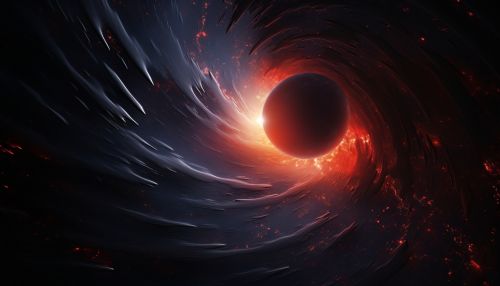Black Hole Thermodynamics
Introduction
Black hole thermodynamics is a branch of physics that explores the behavior of black holes in relation to the laws of thermodynamics. The study of black hole thermodynamics has led to significant insights into the nature of quantum gravity, quantum field theory, and string theory.


History
The concept of black hole thermodynamics was first proposed in the early 1970s by physicists Stephen W. Hawking and Jacob D. Bekenstein. They suggested that black holes should be associated with a certain entropy, now known as the Bekenstein-Hawking entropy, and that they should emit thermal radiation, known as Hawking radiation.
Laws of Black Hole Thermodynamics
The laws of black hole thermodynamics are analogous to the laws of classical thermodynamics.
Zeroth Law
The Zeroth Law of Black Hole Thermodynamics states that the surface gravity of a stationary black hole is constant across the event horizon. This is analogous to the Zeroth Law of Thermodynamics, which states that if two systems are in thermal equilibrium with a third system, they are in thermal equilibrium with each other.
First Law
The First Law of Black Hole Thermodynamics is analogous to the First Law of Thermodynamics, which states that energy cannot be created or destroyed, only transferred or changed from one form to another. In the context of black holes, the First Law states that the change in a black hole's mass is proportional to the change in its area, angular momentum, and electric charge.
Second Law
The Second Law of Black Hole Thermodynamics is analogous to the Second Law of Thermodynamics, which states that the total entropy of an isolated system can never decrease over time. In the context of black holes, the Second Law states that the total area of the event horizons of any collection of black holes can never decrease.
Third Law
The Third Law of Black Hole Thermodynamics is still a subject of ongoing research. It is believed to state that it is impossible to form a black hole with zero surface gravity, analogous to the Third Law of Thermodynamics which states that it is impossible to reach absolute zero temperature.
Bekenstein-Hawking Entropy
The Bekenstein-Hawking entropy is a measure of the amount of information that can be stored inside a black hole. It is proportional to the area of the black hole's event horizon. This concept has profound implications for the holographic principle, which suggests that all the information contained in a volume of space can be represented as a hologram on the boundary of that space.
Hawking Radiation
Hawking radiation is theoretical radiation that is predicted to be emitted by black holes, due to quantum effects near the event horizon. This prediction was first made by Stephen Hawking in 1974. If confirmed, the existence of Hawking radiation would imply that black holes are not completely black, but emit small amounts of thermal radiation.
Implications for Quantum Gravity
The study of black hole thermodynamics has significant implications for the theory of quantum gravity. It suggests that the fundamental laws of physics must incorporate both quantum mechanics and gravity, and that these laws must be applicable even in the extreme conditions present inside a black hole.
